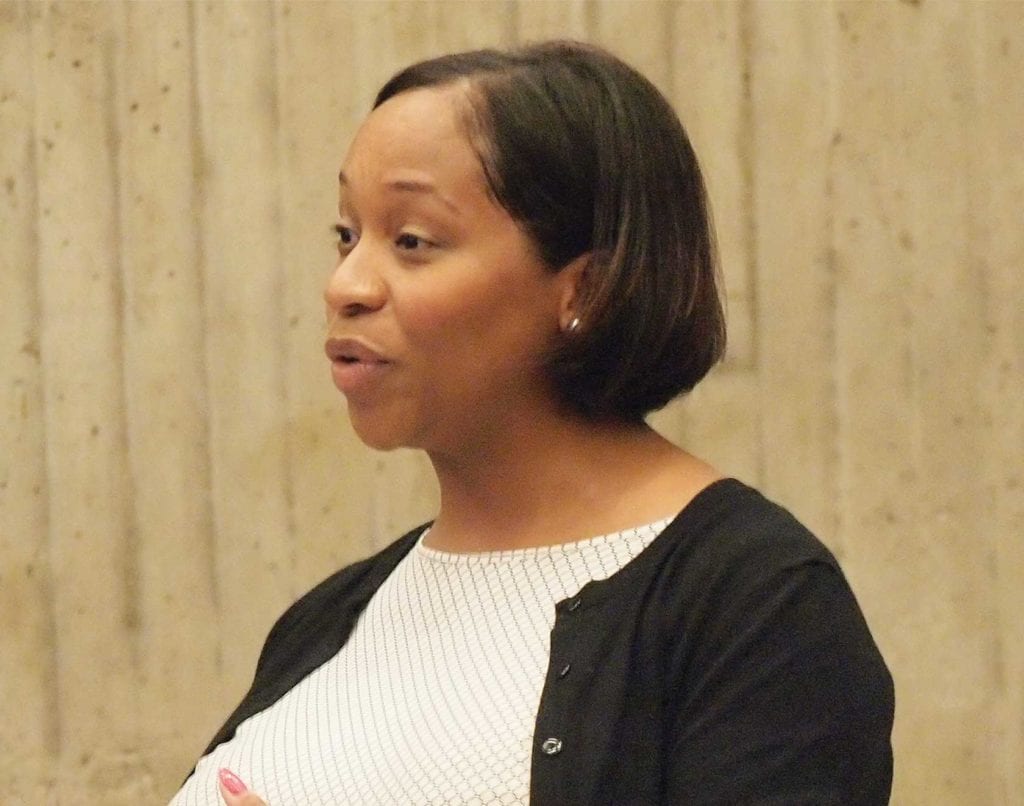Councilors seek end to employer credit checks
Campbell, Janey say credit checks hurt low-income job seekers most

City Councilors Andrea Campbell and Kim Janey have filed an ordinance banning credit checks for Boston residents seeking employment. Referred to the committee on government operations on Aug. 19, the ordinance refers to unnecessary credit checks during the application process as a “discriminatory practice.”
The ordinance would be enforced by the Boston Human Rights Commission and its target is employees throughout Boston.
The ordinance excludes law enforcement and financial institutions such as banks. Credit checks are not consistently part of background checks, which are most commonly used to verify employment history, criminal history and a prospective employee’s identity. But in situations where more information could be helpful, employers often review an applicant’s social media and even their driving records. According to a national survey in 2017 by HireRight, credit history is a less common reason for a background check, but 28% of organizations still check it as part of the pre-hiring process.
“This issue was first brought to my attention by my District 4 residents,” said Councilor Campbell in a city council meeting on Aug. 19, “And by folks who work with my residents who found that residents seeking employment were facing barriers.”
Campbell claims that residents who have student loans or medical bills or have been involved in the criminal justice system tend to experience this barrier the most.
“This legislation would make it an unlawful discriminatory practice for an employer to seek, procure or use credit information regarding an employee or applicant,” she said.
Campbell thanked U.S. Rep. Ayanna Pressley for filing a similar ordinance with her in 2016 when she was a member of the council.
“We need to be eliminating all barriers to employment to ensure people are meeting their full potential and can make contributions civically and to our tax bases,” Pressley told the Banner in 2016.
Sen. Elizabeth Warren wrote legislation along a similar line. The Equal Employment for All Act, co-sponsored by Sen. Ed Markey, aimed to stop employers from requiring that their potential employees disclose their credit history.
“There is no evidence that one’s credit history is determinative of one’s success as an employee,” Campbell said.
In New York City, Chicago and Philadelphia, there are several restrictions in place that reinforce this sentiment. Not including specific exceptions, employers in New York City and Chicago are not allowed to inquire about a potential employee’s credit history. However, in Philadelphia, and in Campbell’s ordinance, jobs that are supervisory or managerial in nature are an exception.
Campbell says that COVID-related hardships have damaged working peoples’ credit.
“Thousands of Bostonians have lost their jobs, or had to leave to take care of loved ones, have fallen behind on rent and mortgage payments, are burdened with emergency medical bills, and the list goes on,” she said.
Councilor Janey also noted the specific effects on low-income neighborhoods and said that the ordinance can bring equity back to the hiring process.
“As we are digging out of our own economic downturn and there is more downturn to come, the more that we can get people to come back to work, the better,” Janey said.






